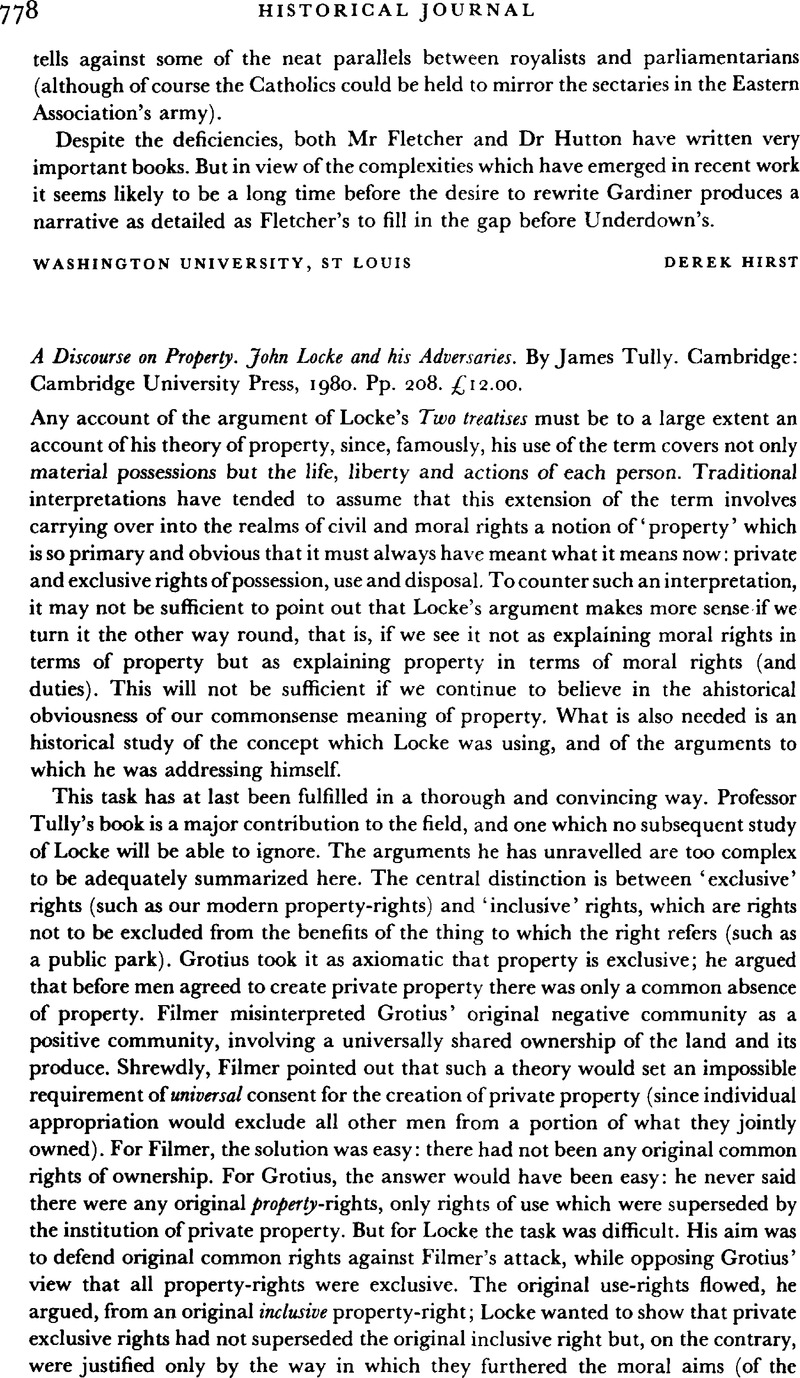No CrossRef data available.
Published online by Cambridge University Press: 11 February 2009

1 The requirement of rationality is also understated in Tully&s account of the role of consent in Locke&s definition of property. What mattered was rational consent; some moral rights were inalienable, because their owners could never rationally consent to transfer them.
2 Locke&s clearest statement of this is in Draft ‘A’ of the Essay (ed. Nidditch, Sheffield University Department of Philosophy, 1980), pp. 89–92;Google Scholar e.g. p. 91: ‘…these Notions or Standards of our actions being not of our own makeing but depending upon something without us…’.